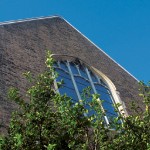New Issue of Marquette Intellectual Property Law Review Is Here
On behalf of the staff of the Marquette Intellectual Property Law Review, I am pleased to announce the arrival of the first issue of volume fourteen, available now in print and online.
This issue highlights the work of several scholars. Dr. Dana Beldiman, a partner with the law firm of Carroll, Burdick & McDonough LLP in San Francisco, examines of the concept of originality within the context of the “knowledge based economy” in her article, “Utilitarian Information Works — Is Originality the Proper Lens?”
Jay Dratler, Jr., Goodyear Professor of Intellectual Property at the University of Akron School of Law, offers an insightful revision of patent law in “Fixing Our Broken Patent System.” In this article, Professor Dratler incorporates never-before-codified principles of judge-made law into an improved statutory scheme that recognizes invention as a commercial and economic process, discourages patents on abstract research, and places the focus of patent law on practical economic and commercial criteria.
This issue also continues our Emerging Scholars Series with an article by César Ramirez-Montes, intellectual property lecturer at the University of Leeds, U.K.

 When I was hired by the Law School in October, I joked that my basketball affections were for sale – Go, Golden Eagles – but, especially when I was writing in my own reporting voice, I didn’t expect to change my journalistic standards (there really are such things) after more than 35 years of newspapering in Milwaukee. So if you want to consider this hopeless pandering to my bosses, I can’t stop you. But I regard this as just a blog item in my voice.
When I was hired by the Law School in October, I joked that my basketball affections were for sale – Go, Golden Eagles – but, especially when I was writing in my own reporting voice, I didn’t expect to change my journalistic standards (there really are such things) after more than 35 years of newspapering in Milwaukee. So if you want to consider this hopeless pandering to my bosses, I can’t stop you. But I regard this as just a blog item in my voice.